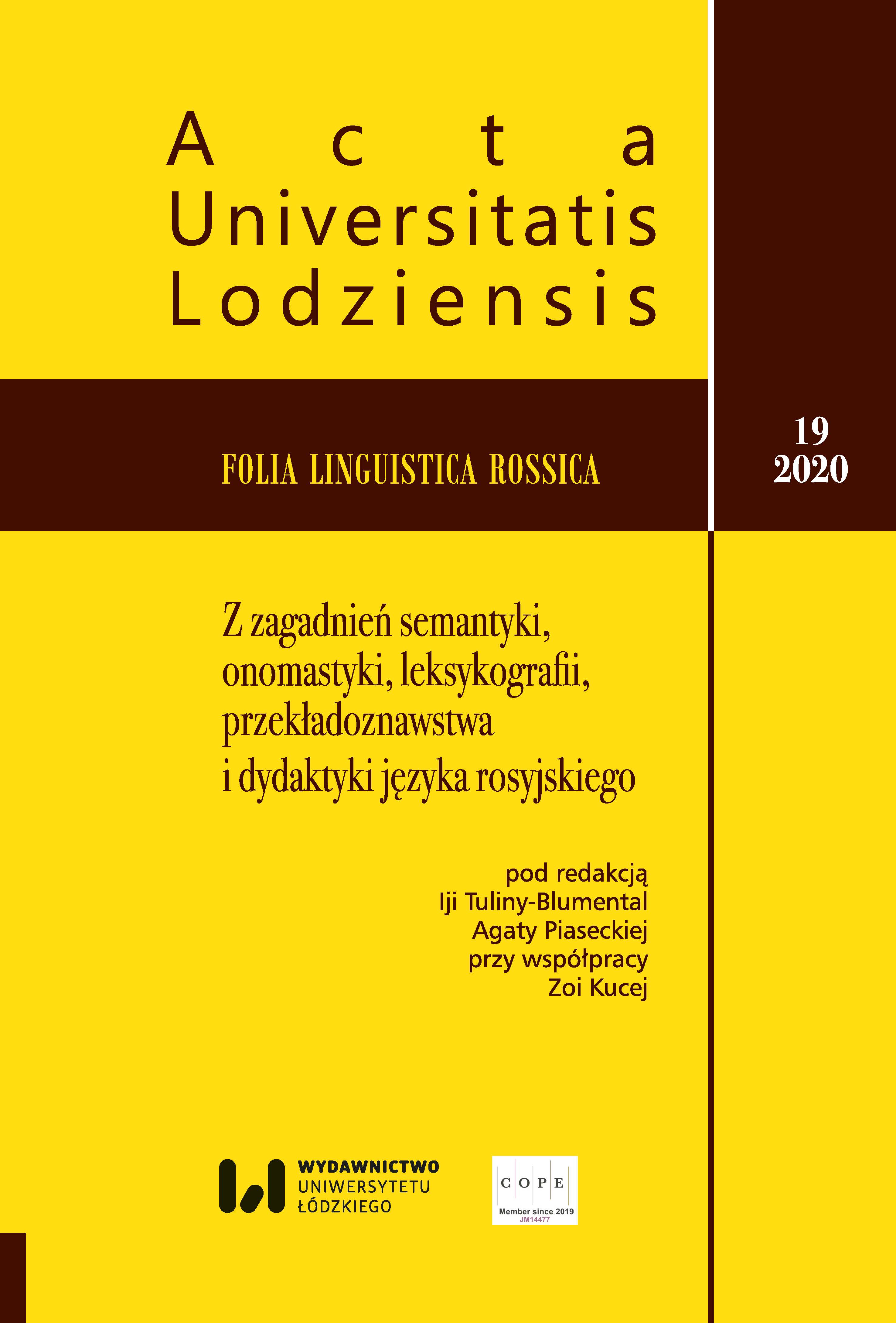Парадигматическая и синтагматическая метонимия как основа развития новых значений в русском языке
Paradigmatic and syntagmatic metonymy as the basis for the development of new meanings in the Russian language
Author(s): Vanja IvanovaSubject(s): Language and Literature Studies
Published by: Wydawnictwo Uniwersytetu Łódzkiego
Keywords: metonymy; metonymic model; innovation; paradigmatics; syntagmatics; Russian language
Summary/Abstract: The article examines the results of the process of innovation taking place in the Russian vocabulary at the beginning of the 21st century. The author analyses semantic innovations which arose on the basis of metonymization in the Russian language during the indicated period. Besides, the article seeks to determine the degree of activity of various metonymizations in the development of secondary meanings in the Russian language in recent years. The innovations are classified according to productive metonymic models that appear in the process of their development. The classification is based on the concept of the syntagmatic and paradigmatic plan of metonymy. Within the paradigmatic metonymy, the genus-species and partitive types are considered; as regards the syntagmatic metonymy, the subordinate and coordinative type of metonymization are distinguished. For the purposes of better systematization, the categorical types of innovations (person, organization, subject, process) are isolated. As a result of the analysis, the genus-species paradigmatic metonymy appears to be the most active type of metonymy in the development of semantic innovations, and the syntagmatic metonymy (subordinate and coordinative) is much less productive.
Journal: Acta Universitatis Lodziensis. Folia Linguistica Rossica
- Issue Year: 2020
- Issue No: 19
- Page Range: 67-78
- Page Count: 12
- Language: Russian

